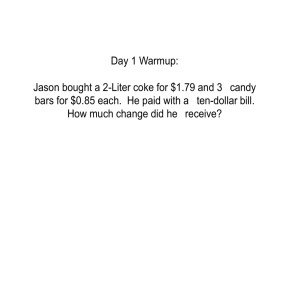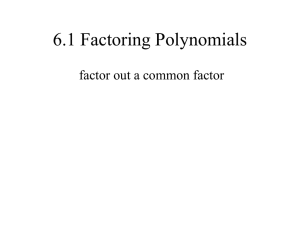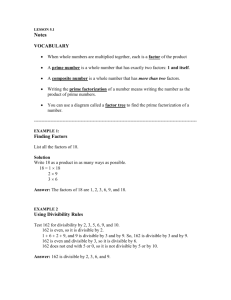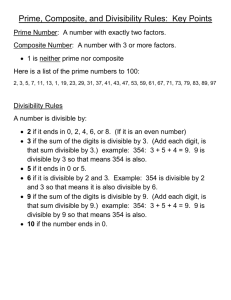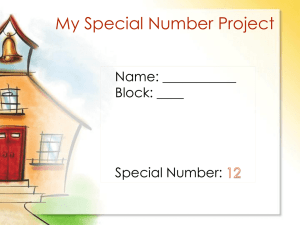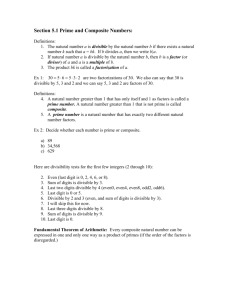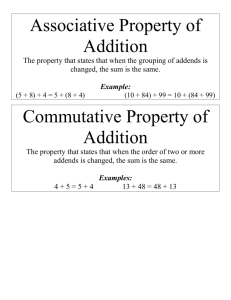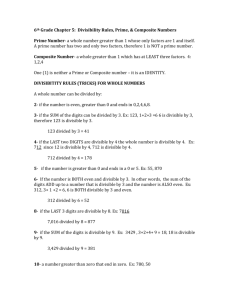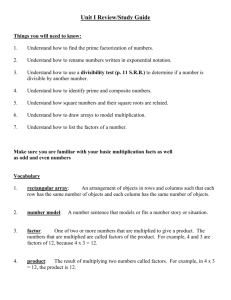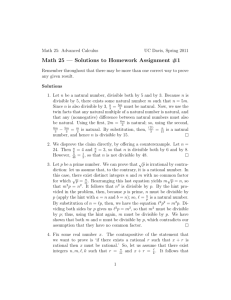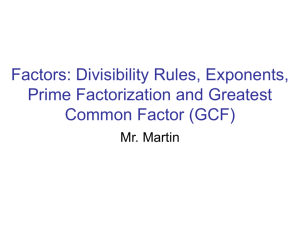Factoring - Richland Community College
advertisement
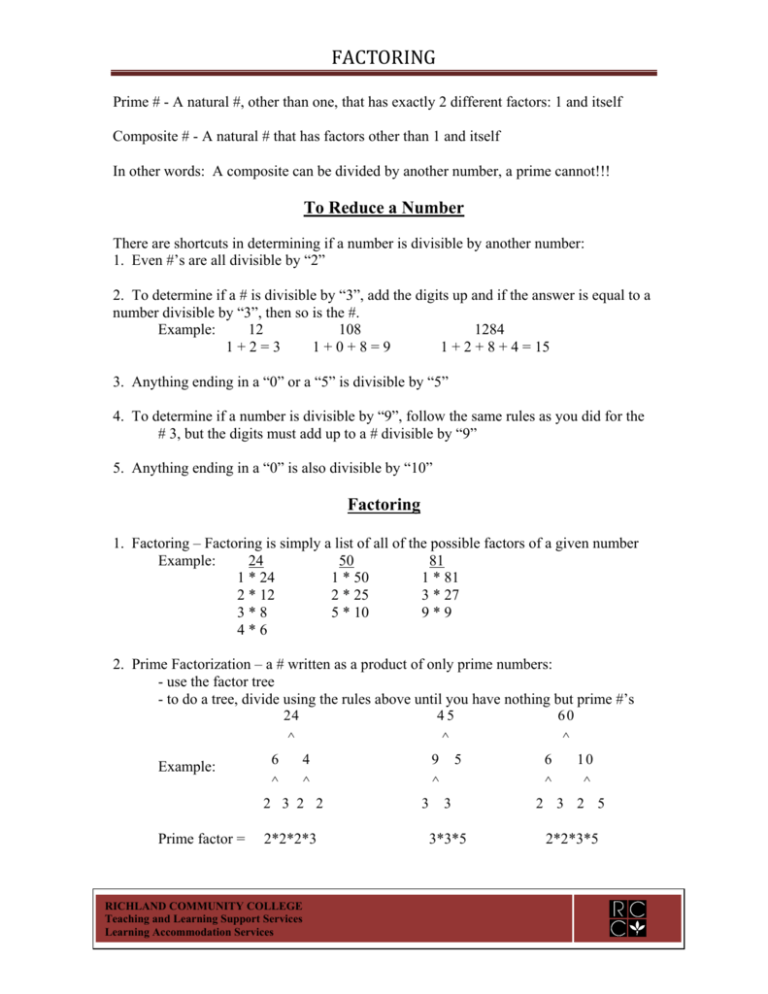
FACTORING Prime # - A natural #, other than one, that has exactly 2 different factors: 1 and itself Composite # - A natural # that has factors other than 1 and itself In other words: A composite can be divided by another number, a prime cannot!!! To Reduce a Number There are shortcuts in determining if a number is divisible by another number: 1. Even #’s are all divisible by “2” 2. To determine if a # is divisible by “3”, add the digits up and if the answer is equal to a number divisible by “3”, then so is the #. Example: 12 108 1284 1+2=3 1+0+8=9 1 + 2 + 8 + 4 = 15 3. Anything ending in a “0” or a “5” is divisible by “5” 4. To determine if a number is divisible by “9”, follow the same rules as you did for the # 3, but the digits must add up to a # divisible by “9” 5. Anything ending in a “0” is also divisible by “10” Factoring 1. Factoring – Factoring is simply a list of all of the possible factors of a given number Example: 24 50 81 1 * 24 1 * 50 1 * 81 2 * 12 2 * 25 3 * 27 3*8 5 * 10 9*9 4*6 2. Prime Factorization – a # written as a product of only prime numbers: - use the factor tree - to do a tree, divide using the rules above until you have nothing but prime #’s 24 45 60 ^ ^ ^ 6 4 9 5 6 10 Example: ^ ^ ^ ^ ^ 2 3 2 2 3 3 2 3 2 5 Prime factor = 2*2*2*3 RICHLAND COMMUNITY COLLEGE Teaching and Learning Support Services Learning Accommodation Services 3*3*5 2*2*3*5
